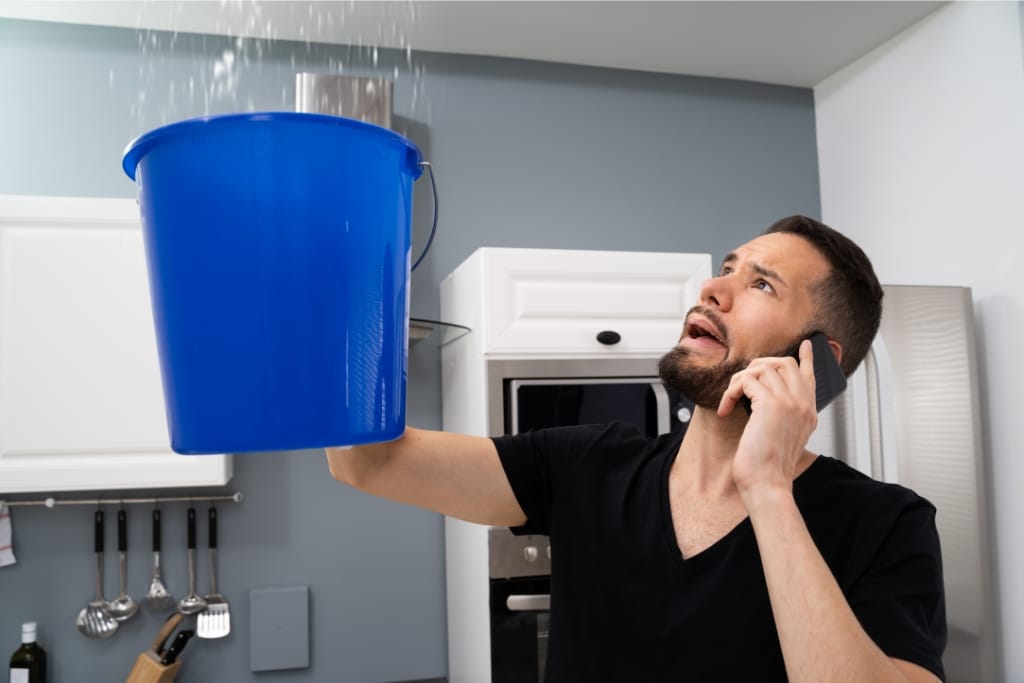Your home is your haven, a place where you should feel safe and secure.
However, no matter how much you try to keep your home protected, there can be unexpected damages caused by natural disasters, accidents, or negligence.
Home damage can be very traumatic and overwhelming, but it's important to act quickly to minimize the damage and prevent further loss.
In this article, we'll discuss 8 essential steps you need to take after home damage occurs.
1)) Ensure Your Safety
The first and foremost thing you should do after home damage occurs is to ensure your safety.
If the damage is severe and dangerous, evacuate the house immediately.
If it's safe to stay inside, turn off the power supply, gas, and water supply to prevent further damage.
2)) Document The Damage
Before you start cleaning up or repairing the damage, take photos or videos of every affected area.
This documentation will help you to file an insurance claim and get proper compensation for the damage.
You should also make a list of damaged items with their value, purchase date, and any receipts or warranty documents.
3)) Contact Your Insurance Company
Notify your insurance company as soon as possible and provide them with the documentation of the damage.
The insurance company's adjuster will assess the damage, estimate the compensation, and guide you through the claim process.
Make sure to follow up with them frequently and keep all the paperwork organized.
4)) Hire Qualified Professionals
If the damage is beyond your capacity to repair, hire qualified professionals to handle the repairs.
Look for licensed and insured contractors who have experience in dealing with your specific type of damage.
Be cautious of scammers who may prey on your vulnerability after a disaster.
5)) Protect Your Property From Further Damage
Take immediate steps to protect your property from further damage.
Cover broken windows and holes in the roof with tarps or plywood.
If necessary, remove water or debris to prevent mold or structural damage.
You should also prevent unauthorized access to your property by boarding up doors and windows.
6)) Clean And Sanitize Your Home
Once the damage is stabilized, you need to clean and sanitize your home thoroughly.
This will not only make your home habitable again but also prevent health hazards caused by mold and bacteria.
Use a disinfectant solution to clean all the surfaces and items that were exposed to water or sewage.
7)) Keep Track Of Your Expenses
It's important to keep track of all the expenses related to the damage and repairs.
This includes the cost of temporary housing, food, transportation, and any other additional expenses you incurred during the recovery period.
You can use these expenses to claim a tax deduction or to seek compensation from your insurance company.
8)) Plan For The Future
Home damage can be a wake-up call to prepare better for the future.
Create a disaster plan with your family and practice it regularly.
Keep emergency supplies such as food, water, a first aid kit, and flashlights in a designated area.
Review your insurance policy regularly and make sure it covers all the potential risks in your area.
Pro-Tip: Having a bugout bag prepared and ready to go is an important thing for homeowners to do in case of an emergency.
A bugout bag is a kit of essential survival items that you can grab and leave with quickly in the event of an emergency, such as a natural disaster.
It should include items like food and water, medical supplies, clothing and rain gear, communication devices, flashlights, and batteries, important documents, cash/cards/tokens of value, tools, protective gear like masks or goggles, entertainment items (like books or games), and any other items you think are necessary for your particular situation.
By preparing a bugout bag ahead of time, homeowners will be able to make sure they have everything they need in the event of an emergency so they can evacuate their homes quickly and safely.
Conclusion
Home damage can be a traumatic experience, but taking the right steps can minimize the damage and speed up the recovery process.
Ensure your safety, document the damage, contact your insurance company, hire qualified professionals, protect your property, clean and sanitize your home, keep track of your expenses, and plan for the future.
Download Our Free E-book!







